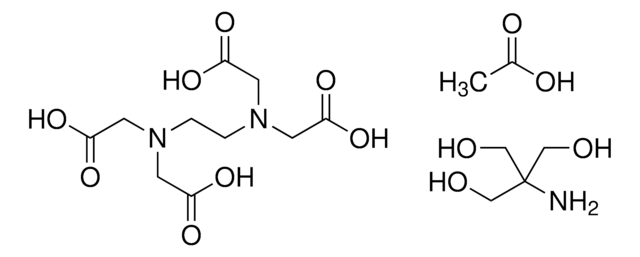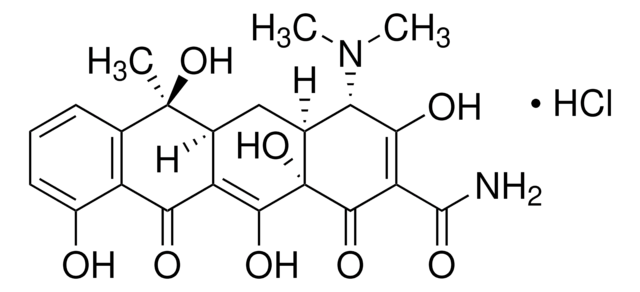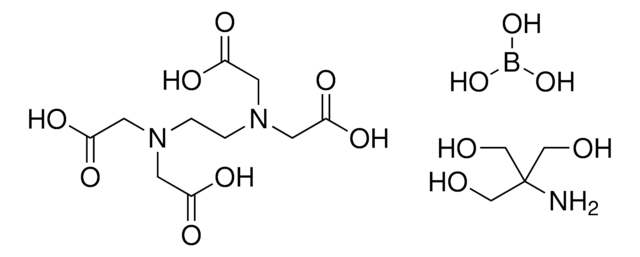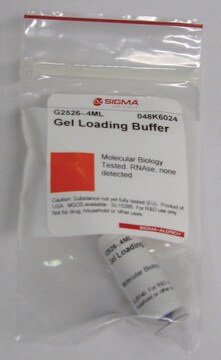T9650
Tris Acetate-EDTA buffer
10× concentrate, BioReagent, for molecular biology, non-sterile; 0.2 μm filtered
Synonym(s):
TAE buffer
About This Item
Recommended Products
grade
for molecular biology
Quality Level
sterility
non-sterile; 0.2 μm filtered
product line
BioReagent
form
solution
suitability
suitable for gel electrophoresis (after dilution to working concentration)
foreign activity
Protease, none detected
RNAse, none detected
SMILES string
CC(O)=O.NC(CO)(CO)CO.OC(=O)CN(CCN(CC(O)=O)CC(O)=O)CC(O)=O
InChI
1S/C10H16N2O8.C4H11NO3.C2H4O2/c13-7(14)3-11(4-8(15)16)1-2-12(5-9(17)18)6-10(19)20;5-4(1-6,2-7)3-8;1-2(3)4/h1-6H2,(H,13,14)(H,15,16)(H,17,18)(H,19,20);6-8H,1-3,5H2;1H3,(H,3,4)
InChI key
HGEVZDLYZYVYHD-UHFFFAOYSA-N
Looking for similar products? Visit Product Comparison Guide
Related Categories
Application
Other Notes
Preparation Note
signalword
Warning
hcodes
pcodes
Hazard Classifications
STOT RE 2 Inhalation
target_organs
Respiratory Tract
Storage Class
12 - Non Combustible Liquids
wgk_germany
WGK 3
flash_point_f
Not applicable
flash_point_c
Not applicable
Certificates of Analysis (COA)
Search for Certificates of Analysis (COA) by entering the products Lot/Batch Number. Lot and Batch Numbers can be found on a product’s label following the words ‘Lot’ or ‘Batch’.
Already Own This Product?
Find documentation for the products that you have recently purchased in the Document Library.
Customers Also Viewed
Our team of scientists has experience in all areas of research including Life Science, Material Science, Chemical Synthesis, Chromatography, Analytical and many others.
Contact Technical Service








